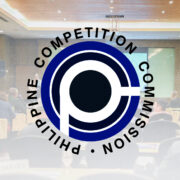Trust and the President

Fresh from attending the 46th Association of Southeast Asian Nations (Asean) summit in Kuala Lumpur, President Ferdinand Marcos Jr. faced the Filipino press. In the question-and-answer portion, little was said about Mr. Marcos’ key concerns at the meeting—the South China Sea Code of Conduct and United States tariffs. Reporters instead focused on the fallout from the midterm elections and the Dutertes.
Mr. Marcos is invariably good when he reads from a prepared script with his usual composure. His diction is perfect. But when pressed to speak off the cuff, he tends to flounder. He struggles with finding the right words, especially when switching between English and Filipino. This time he looked visibly annoyed.
Again and again, reporters asked about the same thing—the link between the administration’s electoral losses and its handling of the Dutertes: Vice President Sara Duterte’s impeachment and the arrest and surrender of her father, former president Rodrigo Duterte, to the International Criminal Court (ICC).
“How many times do I have to say I had nothing to do with the Vice President’s impeachment?” he said. He insisted he had no power over the groups who filed the complaints in the House. Congress, he reminded everyone, is an independent body. Asked about reconciliation with the Dutertes, an issue he had previously addressed in a podcast, he said he remained open to dialogue—so long as there were no preconditions.
Then came the clincher: the latest Pulso ng Bayan trust ratings. Mr. Marcos: 32 percent. Sara Duterte: 50 percent. Rodrigo Duterte: 63 percent. How do you view the results of this survey, he was asked. “According to which survey?” he quickly retorted. Told it was Pulse Asia, he replied that there were other sources of information more useful for policymaking—or something to that effect. And that ended the briefing.
It was not Mr. Marcos’ best day with the press.
What came through clearly was his unease with the topic and his refusal to confront it directly. He insists he does not agree with Sara Duterte’s impeachment and has never supported it. Yet he didn’t seem to have done anything to stop it. He appears oblivious to the fact that his own cousin, House Speaker Martin Romualdez, presides over the chamber that initiated it. Or that his son, Deputy Speaker Sandro Marcos, is the first signatory to the final complaint. He hides behind the doctrine of separation of powers, as if he were not in communication with these two key allies in Congress.
He may think he can sidestep the issue. But the public sees the disconnect. His words say one thing, his people do another. The gap is glaring. It leaves the impression that he is either weak and not in command, or plainly insincere. Either way, he risks losing the one thing no leader can do without: trust.
Why is this important? Because trust—not ideology, not program—is what ultimately holds public life together in our fragile democracy. Filipinos may not fully understand the inner workings of government. But they know when something doesn’t feel right.
They trust leaders who keep their word, defend their actions, and admit their mistakes. They call this authenticity. They trust leaders whose speech and action match, whose words clarify rather than obscure, and whose vision can be relied upon. This is legitimacy. Public trust is given to such leaders freely. It cannot be manufactured.
Once it’s gone, it’s nearly impossible to win it back. From that point on, everything a leader does appears as mere theatrical performance. Worse, when the president’s words no longer align with what is done in his name, public life itself begins to fray. The unspoken social contract—that our leaders speak truthfully and act accordingly—breaks down.
Yet here we are again. After giving a confusing account of the reasons for the arrest and transfer to ICC custody of Rodrigo Duterte, Mr. Marcos now sounds as if he’s laying the ground for the Senate to quietly drop Sara Duterte’s impeachment.
But this is not a private dispute to be settled in a backroom meeting. It is a question of justice and accountability in public office. The president must be reminded: these are not family matters. They are matters of public trust.


















